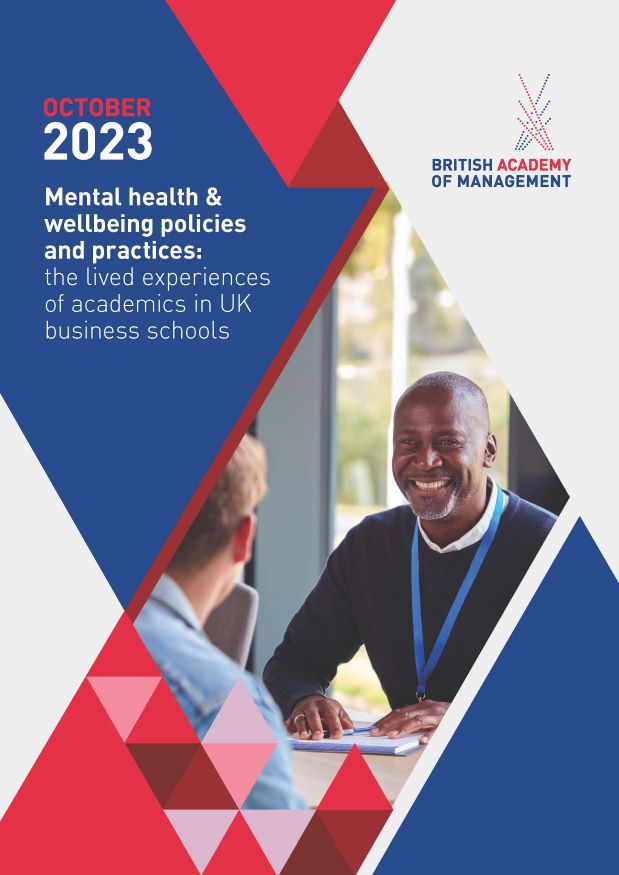Mental health and wellbeing policies and practices: the lived experiences of academics in UK Business Schools

Wellbeing is generally recognised as important within organisations and as a key element of ‘good work’. Despite this, there is a lack of information available on the wellbeing challenges that staff experience within organisations generally.
Within higher education, the focus in relation to wellbeing has been primarily on students, with less attention paid to staff. To address this gap, the British Academy of Management (BAM) set up a team to explore wellbeing and mental health within UK business schools. This strategic project aimed to address the following research questions:
- Are there issues which affect the wellbeing of Business and Management scholars specifically (as opposed to issues which affect all academics)?
- What are the issues that impact on the wellbeing of Business and Management academics and which of these is most critical?
- What can institutions and their leaders proactively do to mitigate the impact of issues? This summary presents the headline findings from this strategic research project.
The project team consisted of:
- Professor Nelarine Cornelius FBAM (Queen Mary, University of London)
- Dr Anne Clare Gillon (University of the West of Scotland)
- Dr Chidozie Umeh (University of York)
The sensitive nature of the findings has meant that we are publishing only a Highlights Report. The underlying detailed findings are a platform for further work, informing a core strand of the BAM Strategy 2024-2028.
A Highlights Report from the project is available to download here
